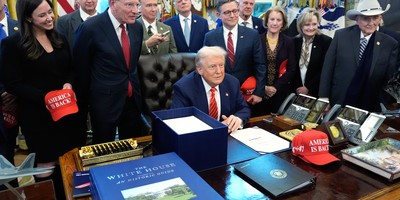India-China: Indian Prime Minister Mohdi hosts Chinese President Xi Jinping for a three-day visit, starting 17 September. The men will discuss trade, investment and border disputes.
Comment: The most significant international political dimension to the visit is that President Xi will not visit Pakistan, which makes this a first. In terms of economics, India's economy is growing faster than China's, but China needs markets and India needs Chinese investments.
The counterpoint to the visit, however, is Indian press treatment of security issues in the run-up to the visit. Indian media printed reminders that a contingent of Chinese soldiers occupies Indian claimed territory in the mountains of northwestern India. Another theme has been India's race to catch up to China in building troop strength, military installations and supporting infrastructures for Indian forces opposite eastern Tibet, including the Army's new mountain corps.
The final security theme has been Prime Minister Modhi's Project Mausam, which aims to restore ancient Indian maritime, trade and cultural links to India's historic partners, from the east coast of Africa to the south coast of China. Modhi's plan is in competition with China's maritime silk route. Modhi's strategic objective is to prevent China from emerging as the dominant power in the Indian Ocean region.
The two are regional strategic competitors, but Modhi and Xi can deal with each other. For now at least, they also can help each other without confrontation. Both leaders seem intent on breaking old stereotypes. Pakistani leaders, for once, are on the sidelines watching.
Afghanistan: The International Security Assistance Force (ISAF) press office in Kabul confirmed that three ISAF soldiers were killed as a result of a suicide bombing attack in Kabul today. Two US soldiers and one Polish soldier died in the attack. The Afghan Ministry of Interior told the press that 13 civilians also had been wounded and that the bomb damaged 17 vehicles.
Recommended
Taliban spokesman Zabihollah Mojahed claimed responsibility for the attack.
Yesterday the Taliban carried out suicide attacks on a NATO supply convoy station in Torkham near the border of Pakistan, destroying more than 20 vehicles and killing 12 people.
Comment: The two attacks are among the more sensational and daring of the year. The Taliban are testing the Afghan and the residual Western forces as well as the ability of the government to manage crises. The presidential election remains undecided and Afghanistan is without leadership. The anti-government forces are taking advantage of the leadership vacuum.
Iraq-Vatican: For the record. The Iraqi ambassador to the Vatican warned the Vatican that the Islamic State of Iraq and the Levant intends to kill the Pope. The Pope has refused extra security for his visit to Albania on Sunday.
Arabian Peninsula-Egypt: Over the weekend, Qatar expelled seven leaders of the Egyptian Muslim Brotherhood who sought refuge in Qatar after the overthrow of the Mursi government in Egypt. Saudi Arabia, the United Arab Emirates and other Arab neighbors forced Qatar to agree to deport the Brothers.
Comment: The Arabs have begun policing the Arabs. Egypt and its Arab backers judge Qatar is meddlesome, finances Islamic extremists and harbors Islamic subversives.
Qatar's support of extremist groups is one of many underling contradictions that pit religion, monarchy and control of territory against each other. The Brotherhood, The Islamic State of Iraq and the Levant (ISIL), the Islamic Front and other fundamentalist Islamic groups that Qatar supports would overthrow all hereditary Arab rulers, as being fundamentally un-Islamic. ISIL would erase all state boundaries. These are considered extreme positions, but they are not un-Islamic.
Syria: President Bashar al-Asad said Tuesday that any campaign against 'terrorism' must start with pressure on countries that support armed groups in Syria and Iraq. 'The battle against terrorism starts with pressure on the countries that support and finance terrorist groups in Syria and Iraq and pretend that they want to fight against terrorism,' state news agency SANA quoted Asad as saying.
Comment: Asad most likely had Qatar, Turkey and a variety of rich Arabs in mind. For a man so vilified in the West, he makes a great deal of sense in that his suggestion begins to expose the underlying systems that enable and sustain the terrorists. ISIL, the al Nusrah Front and the Islamic Front all need supplies and ammunition that must be bought outside the battle zones.
Israel-Gaza Strip: A mortar shell fired from the Gaza Strip landed in Israeli territory on Tuesday, the first time since the end of the recent war between Israel and the Palestinian factions in Gaza, the Israel Defense Forces confirmed.
There were no casualties or damage from the incident, an Israeli military spokeswoman said after authorities located remnants of the shell near a community close to Gaza's border.
Hamas said it had no knowledge of any mortar attack on Israel and that the Palestinians factions remained committed to the truce. "There is no sign a mortar bomb was fired from Gaza and Palestinian factions are committed to keep the agreement for calm, and eager to maintain it," spokesman Sami Abu Zuhri said.
Comment: It is not certain where the shell originated and whether it was fired deliberately. A single violation does not break a ceasefire, but it shows undisciplined groups that it can be broken. Hamas' restatement of its commitment to keep the ceasefire agreement is encouraging, but its reflexive denial is not.
End of NightWatch
###
NightWatch is brought to readers of Townhall Finance by Kforce Government Solutions, Inc. (KGS), a leader in government problem-solving, Data Confidence® and intelligence. Views and opinions expressed in NightWatch are solely those of the author, and do not necessarily represent those of KGS, its management, or affiliates.
A Member of AFCEA International

























Join the conversation as a VIP Member